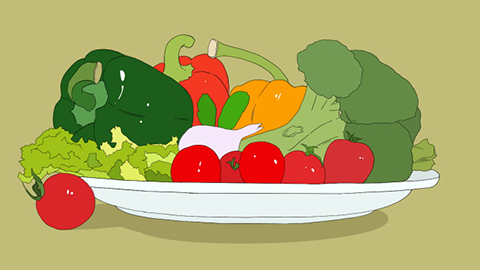What should children eat to recover quickly from coughing?
Relieving children's coughs requires a combination of supportive care and targeted treatment. Foods can help alleviate discomfort, while medications should be used for specific interventions. Commonly recommended foods include pears, white radish, tremella fungus, oranges, and Chinese yam. Common medications include pediatric cough syrup, pediatric expectorant and antitussive granules, ambroxol-clenbuterol oral solution, pediatric lung-heat cough and asthma oral liquid, and guaifenesin-pseudoephedrine oral solution. Detailed information is as follows:

I. Foods
1. Pears: Rich in water and various vitamins, pears help moisten the lungs and promote body fluid production, relieving dryness in the throat. They are best consumed steamed or boiled in water. Their sweet, refreshing taste makes them easily acceptable to children.
2. White Radish: Contains components such as mustard oil that help regulate qi and resolve phlegm, thereby relieving cough. It can be cut into small pieces and boiled in water or cooked with pears. More suitable for older children.
3. Tremella Fungus (Silver Ear Fungus): Rich in plant-based mucilage, it nourishes yin, moistens the lungs, and helps relieve respiratory discomfort. After soaking, it can be cooked into a soft, easily digestible porridge or stew.
4. Oranges: Contain vitamin C and hesperidin, which soothe the throat and provide essential nutrients. Can be consumed as juice or eaten directly, but should not be served too cold to avoid irritation.
5. Chinese Yam: Contains mucilaginous protein that strengthens the spleen and lungs and improves overall constitution. Best served mashed after steaming or cooked into congee, making it ideal for infants and young children.
II. Medications
1. Pediatric Cough Syrup: Contains glycyrrhiza extract and platycodon extract, helping to expel phlegm and suppress cough. Suitable for coughs caused by common colds in children. Must be taken as directed by a physician.
2. Pediatric Expectorant and Antitussive Granules: Composed of ingredients such as platycodon and mulberry bark, it helps remove phlegm and relieve cough. Indicated for cough due to bronchitis in children. Dosage should follow instructions or medical advice.
3. Ambroxol-Clenbuterol Oral Solution: Contains ambroxol hydrochloride and clenbuterol hydrochloride, which help thin mucus and facilitate its expulsion. Used for acute and chronic bronchitis. Must be used under a doctor’s supervision.
4. Pediatric Lung-Heat Cough and Asthma Oral Liquid: Contains ephedra, gypsum, and other ingredients that clear heat, detoxify, and promote lung function while resolving phlegm. Suitable for coughs caused by lung-heat type colds. Should be taken according to prescribed course and under medical guidance.
5. Guaifenesin-Pseudoephedrine Oral Solution: Contains guaifenesin and pseudoephedrine, which help relieve nasal congestion, cough, and phlegm. Use strictly as directed by a physician.
Diet should remain light; avoid sweet, greasy, and spicy foods, and ensure adequate fluid intake. Medications should be selected based on the specific type of cough—do not combine multiple cough medicines. If cough persists beyond three days or is accompanied by fever or wheezing, prompt medical evaluation is necessary.






